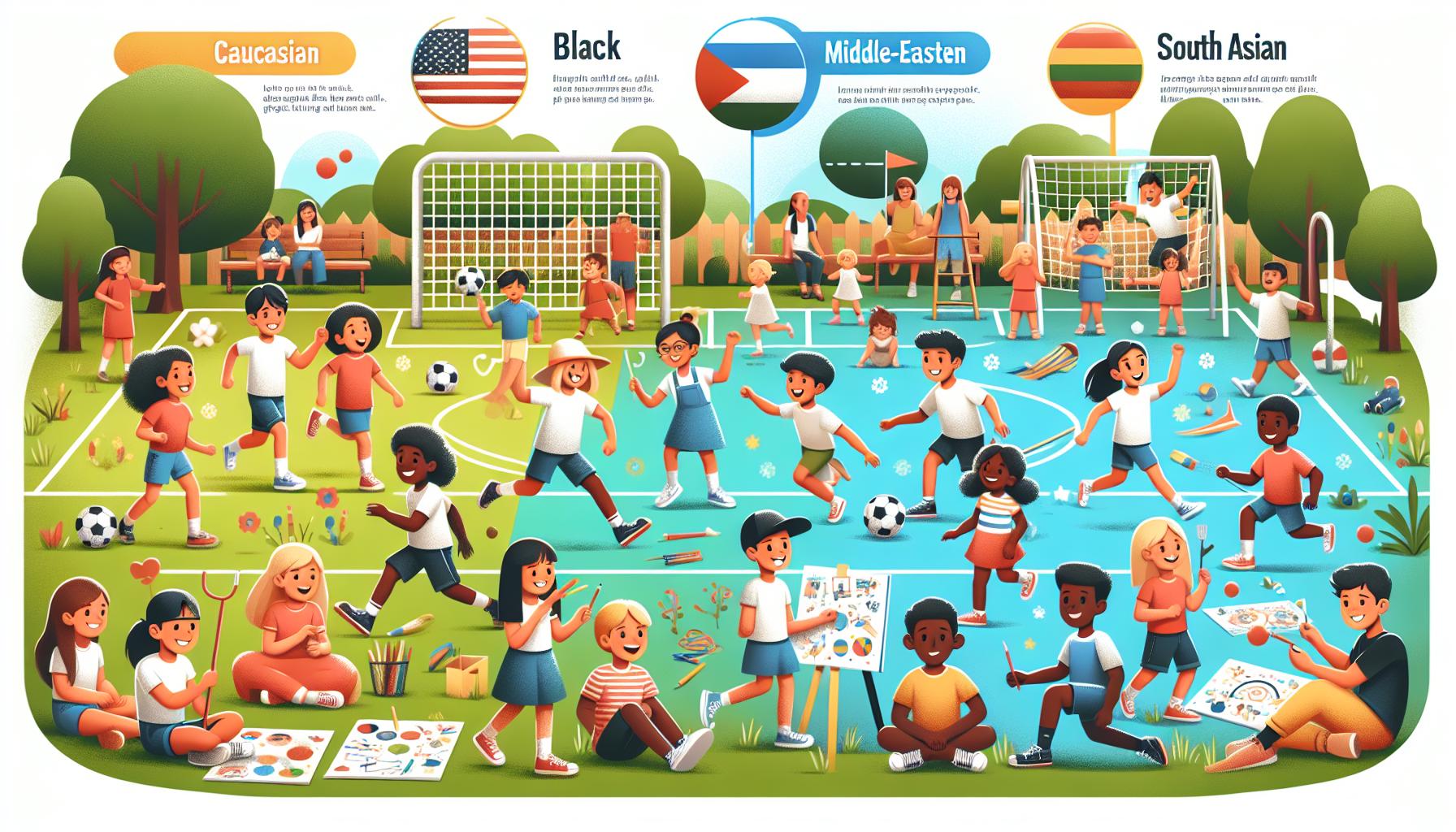
Key Takeaways
- Homeschooling provides unique opportunities for socialization through intentional participation in co-ops, extracurricular activities, and community programs.
- Socialization for homeschoolers often extends beyond same-age peers, encouraging interactions with diverse age groups and backgrounds.
- Common myths, like the “loneliness” or “friendless” stereotypes, overlook the meaningful connections and flexible social experiences homeschooling fosters.
- Homeschooling allows personalized, adaptable socialization experiences based on each child’s personality and needs, promoting emotional intelligence and confidence.
- Challenges like limited peer interaction or stereotypes can be addressed by actively creating opportunities for regular engagement and showcasing the benefits of homeschooling.
- Leveraging local groups, extracurricular activities, and online communities enhances social growth, offering homeschoolers a well-rounded social foundation.
When we think about homeschooling, one of the first questions that often comes up is, “What about socialization?” It’s a common concern and one that many parents share. Will children who learn at home miss out on building friendships, teamwork, or essential communication skills? These are valid questions, and addressing them is key to understanding how homeschooling can truly work.
Socialization isn’t just about being around peers; it’s about forming meaningful connections and learning to engage with others in diverse settings. As homeschooling families, we have the opportunity to approach this in creative and intentional ways. But how do we make sure our children thrive socially while learning outside a traditional classroom?
Understanding how to foster these connections can ease worries and open doors to new possibilities. Let’s explore how we can help homeschoolers grow into confident, socially adept individuals ready to navigate the world around them.
Understanding Homeschooling Socialization
Socialization in homeschooling often raises concerns about whether children can develop necessary interpersonal skills. Homeschooling doesn’t follow the traditional school environment, but it offers different avenues for children to engage with others. Homeschooled children have opportunities to build friendships, communicate effectively, and participate in group interactions through various activities.
How do we create these opportunities? Participation in extracurricular programs like sports, music classes, or community groups provides regular interaction with peers. Local homeschooling co-ops often organize group activities, which foster collaboration and teamwork.
What about exposure to diverse perspectives? Socialization isn’t limited to same-age peers. Homeschooled children often engage with individuals across various age groups. Activities such as volunteering, attending workshops, or joining intergenerational programs help expand their worldview.
Family involvement also plays a role in social development. Parents and relatives contribute by modeling effective communication and conflict resolution. By promoting emotional intelligence at home, families lay a foundation for positive interactions outside of it.
Are there challenges? Certainly. Balancing academics and regular social activities requires thought and planning. However, with consistent effort and access to community resources, homeschooling families can support well-rounded social growth.
Common Myths About Homeschooling and Socialization

Concerns about homeschoolers’ social lives often stem from misconceptions. Let’s explore and clarify two prevalent myths.
The Loneliness Myth
It’s often believed that homeschooled children grow up lonely due to limited interaction with peers. This perception overlooks the many ways homeschooling families create social opportunities. Homeschooled children participate in group sports, community centers, theater programs, and similar activities. These environments encourage teamwork and shared experiences.
Structured activities aside, homeschooling provides flexibility. Families often dedicate time to regular playdates, park meetups, or museum visits, fostering meaningful connections. Do we mistakenly equate socialization only with traditional classroom settings? Homeschoolers often engage with individuals of varied ages, creating diverse social skills rather than limiting interactions to age-specific peers.
The Friendless Child Assumption
Another myth is that homeschoolers struggle to form friendships. While homeschoolers may not encounter peers daily in a classroom, they often build deep, lasting friendships in other settings. Homeschool co-ops, clubs, and neighbor interactions provide consistent chances to bond with others.
Moreover, small-group settings can allow homeschoolers to develop strong interpersonal skills. Encouraging participation in shared hobbies or community service offers platforms to connect with like-minded individuals. Are friendships better measured by quantity or by their depth and quality? Many homeschooled children experience the latter.
Benefits Of Homeschooling Socialization

Homeschooling offers flexible opportunities for children to form meaningful social connections. It enables personalized approaches to social growth, highlighting the advantages of tailored interactions.
Diverse Social Opportunities
Homeschooling creates varied opportunities for children to interact with others across different settings. Through local co-ops, homeschoolers engage in group activities like science fairs, collaborative projects, or public speaking events. These spaces encourage teamwork and help develop communication skills.
Community programs like sports leagues, dance classes, and library events expose children to peers with shared interests. Interacting in these environments teaches cooperation and respect, fostering well-rounded social skills. Volunteer activities are another avenue where homeschooled children build relationships while contributing to meaningful causes.
How do these opportunities help your child explore new interests while connecting with diverse groups? By giving them access to people of different age groups, backgrounds, and experiences, parents support their child’s social and emotional development.
Individualized Socialization Experiences
Homeschooling adapts to each child’s social needs and personality. For children who thrive in smaller groups, parents craft experiences that promote confidence in intimate settings like playdates or study groups. For those who enjoy larger gatherings, options like homeschool fairs or multi-family field trips offer lively interactions.
This approach helps children focus on building relationships at their own pace. Parents can guide their children toward positive interactions, fostering stronger connections with others. Are you observing how your child’s unique personality influences their social growth? The flexibility of homeschooling meets them where they are, offering endless possibilities for tailored engagement.
By nurturing purposeful interaction and focusing on quality over quantity, homeschooling allows children to grow into socially competent individuals.
Challenges Of Homeschooling Socialization
Homeschooling can offer abundant benefits, but concerns about socialization are still common. Let’s explore some challenges families may encounter and consider ways to address them effectively.
Limited Peer Interaction
Homeschooled children may engage less frequently with peers in the same age group. Unlike traditional schools where daily interaction with classmates occurs, homeschooling often depends on planned activities like co-ops or group lessons. This reduced exposure can make it harder for kids to form casual friendships.
For example, homeschooled children might not experience the same spontaneous social moments, such as chatting during recess or collaborating on group projects. Does your child have regular opportunities to meet and connect with peers? Parents can help by scheduling consistent activities, such as sports leagues or community workshops, where ongoing interactions can develop friendships naturally.
Overcoming Stereotypes
Some people assume homeschooled children lack social skills or are isolated. These stereotypes can create misunderstandings that affect how others perceive homeschooling families. Have you ever felt judged or faced questions about your child’s social life?
We acknowledge these perceptions may feel overwhelming. However, addressing them with confidence helps break down misconceptions. Helping children confidently navigate questions from peers or other adults can build resilience. In addition, sharing examples of your child’s social successes, like volunteering or participating in group events, showcases the social opportunities homeschooling offers.
Strategies To Enhance Homeschooling Socialization
Cultivating social connections is vital for homeschooling families. While academic growth is often the focus, developing your child’s social skills nurtures confidence and well-rounded development. What steps can we take to create meaningful social opportunities?
Joining Local Homeschool Groups
Local homeschool groups bring families together for shared learning experiences. These groups often organize field trips, projects, and group classes that encourage children to collaborate and build friendships. Many communities also have homeschooling co-ops where parents share teaching responsibilities, creating an environment for children to learn and socialize. Have you explored options for co-ops or nearby groups in your area?
Connecting with other families may also lead to informal meetups. Arranging park days or themed workshops fosters casual interaction, helping children bond in a natural setting. Establishing regular participation helps strengthen these relationships over time.
Participating In Extracurricular Activities
Extracurricular activities provide diverse opportunities for children to engage with peers outside their usual circle. Sports teams, music lessons, and art classes allow homeschooled children to develop teamwork, discipline, and communication skills. For example, joining a local soccer league or attending a children’s choir program can open doors to new friendships.
Community organizations such as libraries or recreation centers often host youth-focused programs. Participating in these can help children interact with a broader age range and gain exposure to different interests. How might your child’s hobbies translate into consistent group interaction?
Leveraging Online Communities
Online communities connect homeschoolers beyond geographic boundaries. Virtual classes, forums, and social platforms promote interaction with peers worldwide. Children can join groups focused on shared interests—such as coding clubs, book discussions, or science challenges—to engage in collaborative projects.
Parents benefit from online communities too. Sharing advice, finding resources, and arranging hybrid meetups enriches the homeschooling experience for families. Are you already taking advantage of virtual networks to expand your child’s social horizons?
Conclusion
Homeschooling offers a unique and flexible approach to socialization that allows children to build meaningful connections in diverse settings. By tapping into community resources, extracurricular activities, and homeschool groups, we can ensure our children grow into confident, socially adept individuals.
While challenges and misconceptions exist, they can be overcome with thoughtful planning and consistent effort. It’s clear that homeschooling families have the tools and opportunities to nurture well-rounded social development, proving that quality interactions often matter more than quantity. With creativity and dedication, we can help our children thrive both academically and socially.
Frequently Asked Questions
Do homeschooled children struggle with socialization?
Homeschooled children do not inherently struggle with socialization. With access to co-ops, extracurricular activities, community events, and volunteer opportunities, they can develop essential social skills. Homeschooling provides diverse, meaningful connections outside of a traditional classroom, fostering well-rounded social growth.
How can homeschooling families promote socialization?
Homeschooling families can promote socialization by participating in local homeschool co-ops, enrolling in extracurricular activities, attending community events, and organizing playdates. These activities allow children to develop teamwork, communication, and collaboration skills while building meaningful friendships.
Are homeschoolers lonely compared to traditionally schooled children?
No, homeschooled children are not necessarily lonely. While they may lack daily interaction with classroom peers, they often form deep, lasting friendships through co-ops, sports, volunteering, and other group settings. The quality of these relationships often outweighs quantity.
Can homeschooling help children socialize with diverse age groups?
Yes, homeschooling fosters interactions across diverse age groups. Through volunteering, intergenerational programs, and community events, homeschooled children can engage with people of different ages, teaching them cooperation, empathy, and respect, which enhances their social adaptability.
What are the advantages of homeschooling for socialization?
Homeschooling offers flexibility in forming social connections, tailoring activities to a child’s unique needs. Opportunities like co-ops, science fairs, and community programs encourage quality interactions in smaller, meaningful groups, promoting emotional and social growth.
What are the challenges of homeschooling socialization?
The challenges include limited spontaneous peer interactions and overcoming societal misconceptions about homeschoolers lacking social skills. Parents need to actively schedule consistent social opportunities and engage with community activities to support their child’s social development.
Do homeschooled children receive enough peer interaction?
Yes, homeschooled children can receive ample peer interaction through co-ops, sports teams, interest-based clubs, and local activities. These avenues provide structured opportunities to build friendships and enhance teamwork and communication skills.
How can parents address stereotypes about homeschooling and socialization?
Parents can combat stereotypes by sharing their child’s social successes, participating in community events, and highlighting the quality friendships their child forms. Active engagement in public activities also helps break down misconceptions.
What role does family play in homeschooling socialization?
Family plays a crucial role by modeling effective communication, empathy, and emotional intelligence. This foundation helps homeschooled children develop positive interactions in other social settings, building confidence and adaptability.
Can online communities enhance homeschool socialization?
Yes, online communities provide additional avenues for homeschoolers to connect with peers, share interests, and collaborate on projects. They can complement in-person activities and expand a child’s network beyond their geographic location.

